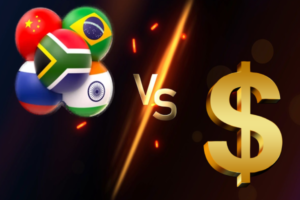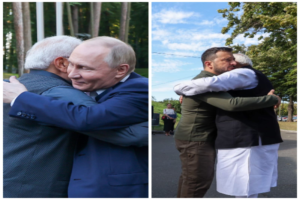The Russia-Ukraine war is now in its third year, and geopolitical experts remain uncertain about when it will end. As of September 2024, Russia controls one-third of Ukraine and continues to make advances in eastern Ukraine. Meanwhile, Ukraine has made significant gains, including capturing Russia’s Kursk city. This marks the first time since the end of World War II that foreign forces have invaded Russian territory.
As tensions escalate, Ukraine seeks permission from Western countries to launch deeper strikes into Russian territory using long-range missiles supplied by the West. In response, Russian President Vladimir Putin has warned that such actions could lead to a direct confrontation with NATO. Despite the aggression from both sides, there are emerging signals that peace talks could be on the horizon. Recently, Putin stated that Russia is ready for peace talks and suggested that countries like India, China, and Brazil could mediate the process.
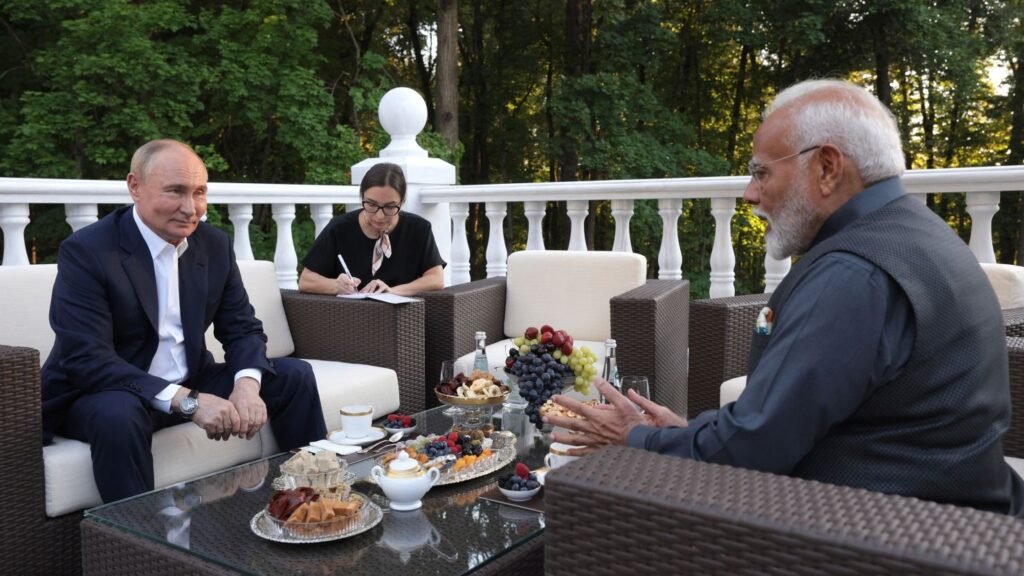
In July 2024, Indian Prime Minister Narendra Modi visited Russia, a move that sparked criticism from Western nations. Ukrainian President Volodymyr Zelenskyy went so far as to call Modi’s actions “disturbing,” describing his embrace of Putin as troubling, referring to Putin as a murderer. However, it is important to note that Modi is the only world leader to have directly told Putin that “this era is not an era of war.” He has consistently emphasized that dialogue and diplomacy are the only paths forward in resolving the conflict. From the beginning of the war, India has positioned itself as a proponent of peace.
In August 2024, a month after he visited Russia, Modi travelled to Ukraine, meeting with Zelenskyy and presenting India as a potential mediator in future peace talks. This marks a shift in India’s foreign policy, moving from a stance of equal distance between Russia and Ukraine to one of “equal closeness.” Modi made it clear that India is willing to play an active role in any peace process between the two nations.
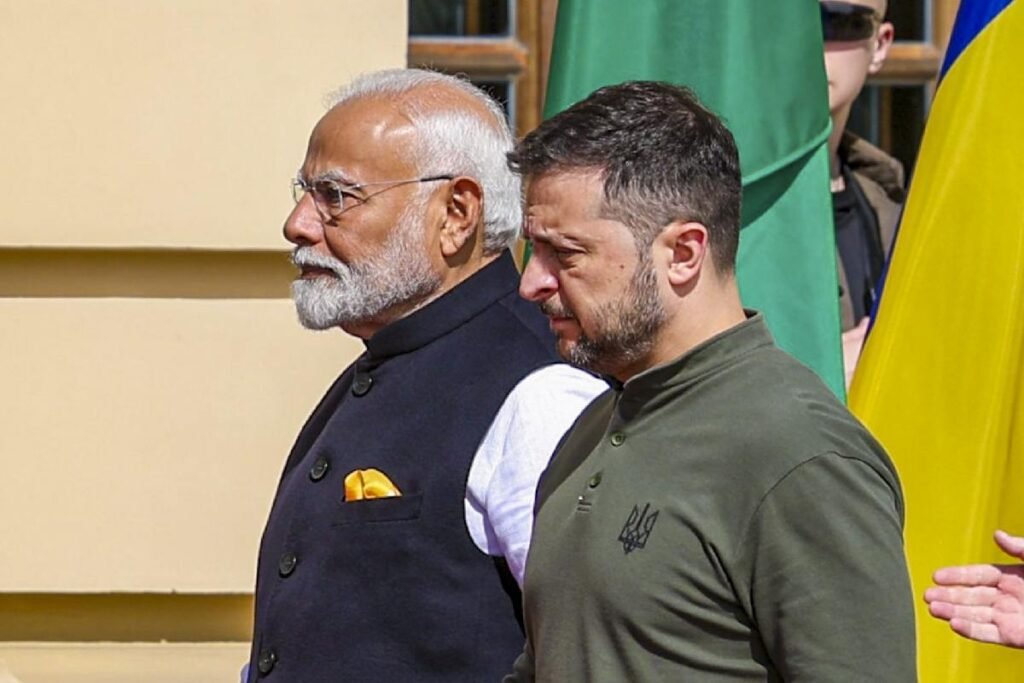
India appears to be positioning itself as a mediator, with Modi explicitly stating during his Ukraine visit that India is ready to take on an active role in peace negotiations. Similarly, India’s External Affairs Minister, S. Jaishankar, echoed this sentiment in Berlin, affirming that if Russia and Ukraine are open to negotiation, India is willing to offer its advice.
India’s National Security Advisor, Ajit Doval, also met with Putin on the sidelines of the BRICS NSA meeting to brief him on Modi’s visit to Ukraine. This reflects India’s evolving stature in global geopolitics, being seen as both neutral and credible. In fact, Zelenskyy has proposed that India, along with other Global South countries, could host the second peace summit.
Russia has historically been India’s “all-weather” friend, and the two countries share a long history of military cooperation. Russia is currently India’s largest supplier of military equipment and, more recently, has become India’s top source of crude oil, overtaking Iraq and Saudi Arabia. A peaceful Russia aligns with India’s strategic interests.
At the same time, Ukraine offers a gateway to Eastern Europe, a region where India seeks to strengthen its presence. For the first time, India is looking to engage with individual European countries rather than dealing with Europe as a single bloc. This strategy aligns with India’s broader goal of expanding its influence in global geopolitics.
Major conflicts often result in regional and global realignments, and the Russia-Ukraine war could reshape the world order. India has an opportunity to be at the center of these geopolitical shifts. If India successfully mediates peace between Russia and Ukraine, it could bolster its case for permanent membership in the United Nations Security Council (UNSC). India, therefore, has much to gain from playing an active role in future peace talks, with little to lose.
The outcome of the 2024 U.S. presidential election will significantly impact the trajectory of the Russia-Ukraine war. As a key player in the conflict, the U.S. must be actively involved for any peace agreement to succeed. India must be prepared to work with whichever U.S. administration comes to power, forging a mechanism with the U.S. to promote peace.
The world is now awaiting the second peace summit, which is expected to include Russian participation. The absence of Russia in the first summit held in Switzerland led to its failure, and India will likely refrain from fully participating in any peace talks where Russia is not involved. India’s position is clear: peace can only be achieved when both Ukraine and Russia are at the negotiating table. To achieve peace in the Russia-Ukraine war, India’s priority must be ensuring that both countries agree to meet and negotiate directly. Only then can India play a constructive role in ending the conflict.
In conclusion, India’s balanced diplomacy and strategic positioning place it in a unique role as a potential mediator in the Russia-Ukraine war. With strong ties to both Russia and the West, India has the opportunity to push for meaningful peace talks that could not only end the conflict but also elevate its global standing. As the world waits for a second peace summit, India’s role in ensuring both sides come to the table will be crucial. Successful mediation could reshape India’s influence on the global stage, benefiting its geopolitical interests and aspirations.
More Blogs
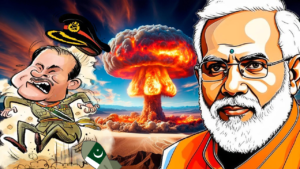
DE-NUCLEARIZING PAKISTAN: A STRATEGIC NECESSITY FOR GLOBAL SECURITY
